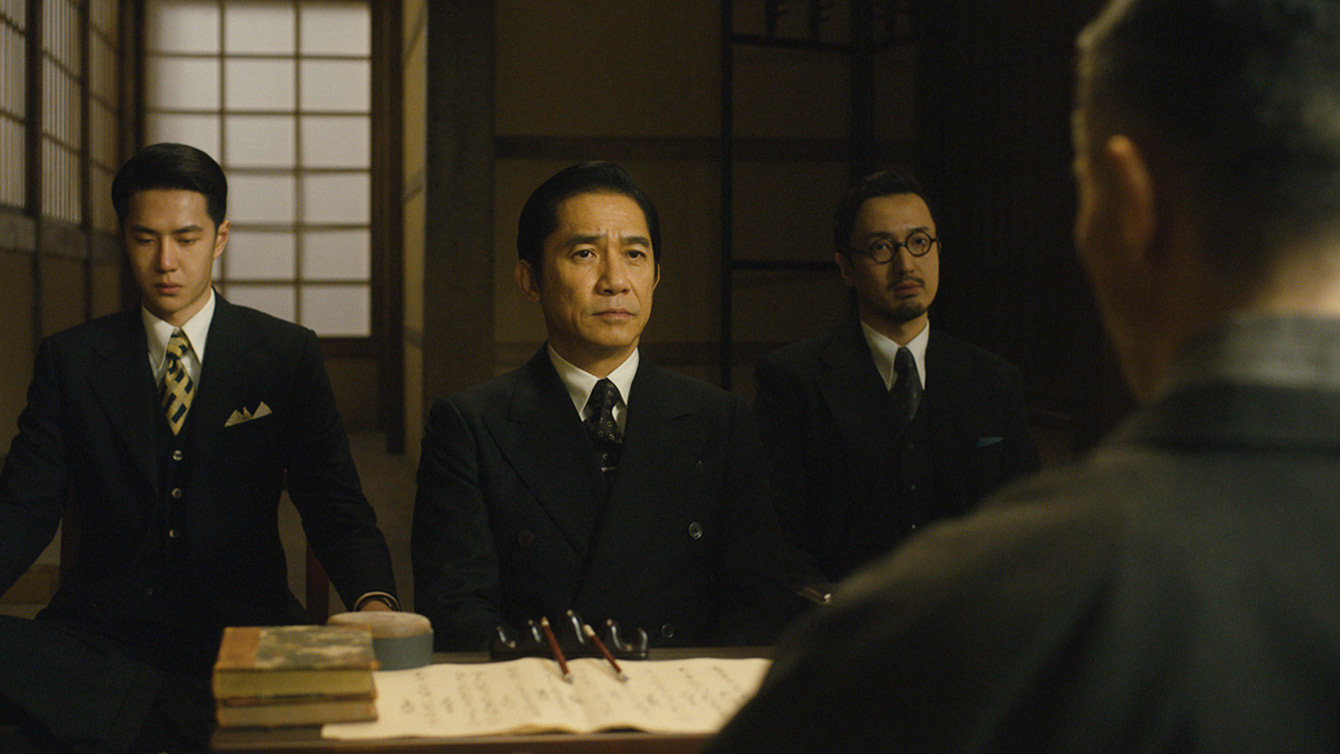
Have you ever read a book by an author incapable of writing a bad sentence, and yet, for some reason or another, the book as a whole never maintained your interest as much as its well-constructed sentence-level parts? It’s a very unique reading experience. The third-film in the Chinese “Victory Trilogy,” Hidden Blade, translates the experience to the visual plane: it’s a gorgeous spy-noir, with hardly a boring composition in it—and yet, I’m not sure I’d jump to recommend it and its empty calories to many.
Set in Japanese occupied Shanghai on the onset of World War II, the Chinese Communist Party’s Special Branch leads a covert intelligence operation undermining the Japanese and the anti-Communist Kuomintang. The excellent Tony Leung plays Mr. He, a double-agent whose true loyalties are with the Communist Party even though he works for the firmly anti-Communist Japanese. The beautiful compositions start with Leung, donning his signature suit and cigarette look and filmed in beautiful post-noir lighting. At this point in his career, it would feel like a misuse to not make him smoke while wearing a suit.
And they continue with all of the film’s many controlled dialogue scenes. In one on one and small group settings, the majority of the movie consists of high stake conversations from the decision makers as opposed to the groundwork of the grunt spies à la James Bond. To make the conversations visually engaging, director Cheng Er (The Wasted Times) and production designer Sun Li provide compelling and photographically composed sets often built around large political symbols, especially flags. Unfortunately, the blocking doesn’t ever reach the same level of production and the characters never push or pull against the ideological symbols in any interesting ways—making the designs little more than decorative.
It’s theoretically interesting to see a Bond film from M’s perspective… but in reality, the story loses some of its stakes and most of its fireworks. From a geo-political comparative filmmaking lens, there is something interesting in that multiple of this year’s big Chinese blockbusters—namely, The Wandering Earth 2 and Hidden Blade—both focus on the decision making rooms of the highest echelons of the Communist Party in moments of national (or global) crisis. It’s not like they are even trying to hide the obvious political intentions…the first film in the Victory Trilogy celebrating the PRC’s centennial, 2021’s Chinese Doctors, dramatizes the efforts of the Wuhan medical staff at the beginning of the soon-to-be global pandemic.
I’ve always hated the tendency of reviewers to exclusively view international cinema through ethno-national distinguishing elements. To approve or condemn modern Chinese cinema through “propaganda or not” binoculars is to lose out on its many riches and complexities. That said, as part of a trilogy whose intention is specifically to “ China’s triumphs in history,” Hidden Blade must be considered as a piece of propaganda. And on that level, it’s basically tolerable pro-militarism. As a spy film set in an occupied nation during WW2, the pro-Communist propaganda lends it the gravity of liberation that most American war films lack (at least, the ones not set during WW2), even if it’s difficult to find spot anything ideologically Marxist motivating the film.
Hidden Blade may be a bunch of empty calories…but at least it’s not junk food.
Hidden Blade
2023
dir. Cheng Er
128 min.
Opens Friday, 2/17 @ AMC Boston Common
The post REVIEW: Hidden Blade (2023) dir. Cheng Er appeared first on BOSTON HASSLE.
